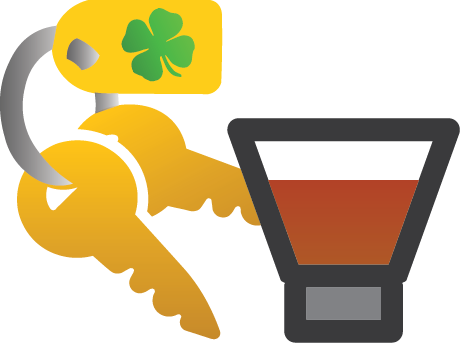
Celebrations, parades imply ‘party’ time
Although San Francisco’s St. Patrick’s Day Parade and Celebration attracts nearly 100,000 attendees every year, the party only lasts a few hours for hoards of intoxicated attendees who promptly pass out on couches after “celebrating Irish pride.”
“The city holds these big events for holidays, like St. Patrick’s Day, where people dress up and have fun, but lately it’s turned into a time where kids go out and drink,” junior Francesca Petruzzelli said. “I’ve seen those events deteriorate from having a meaning or purpose, really just falling into a party category.”
American consumers spent approximately $221.5 million on beer during St. Patrick’s Day in 2014, according to the National Retail Federation.
Herd mentality, a concept describing how peers influence others to adopt certain behaviors, may contribute to the implied link between certain major holidays and alcohol intoxication.
“There’s an energy and expectation for these holidays that supersedes caution,” psychotherapist Andrew Sussman said. “Many people just go along with the ride without thinking particularly — it’s around and it’s become sort of commonplace.”
The drinking culture surrounding other holidays, such as Fourth of July, can also trickle down to underage drinkers.
Hospital emergency room visits involving underage drinking nearly double during the Independence Day holiday, according to Arapahoe House, a Colorado-based drug and alcohol rehab center.
“For adolescents, specifically ones that are younger, the pressure to drink can be more intense,” Sussman said, “especially when they get firsthand exposure to how other people celebrate these holidays.”
Alcohol consumption decisions can also extend beyond traditional, national holidays.
As San Francisco’s annual Pride Parade and Celebration may represent a time for some attendees to celebrate and pay respect to the advancement of LGBT rights, many younger onlookers utilize the holiday as an excuse to go out and imbibe.
“A lot of people just show up to the Pride Parade because they want to drink and that’s their decision,” Petruzzelli said, “but that affects the decisions of other people who wanted to celebrate that particular event differently.”
Some holiday drinkers, including those who are underage, may additionally feel the need to notify followers on various social media platforms about their intoxication.
An estimated 33,000 posts cycled through Facebook and Twitter in 2015 during the Fourth of July, according to social media analytics company Unmetric.
“Claiming you get drunk is a way of showing off and gaining popularity,” freshman Jacqui Carlson said. “Some people my age even take drinking as a joke and send out snapchats when they’re drunk just to ‘show off.’”
“I’ve seen those events deteriorate from having a purpose to really just falling into a party category.”
— Francesca Petruzzelli
The need to increase popularity amid peers can occur at the expense of future college admission decisions.
Thirty-five percent of college admission officers said they found something negatively impacting an applicant’s chances of getting in when reviewing students’ online presences in 2016, nearly tripling from 12 percent in 2015, according to a survey distributed by test prep company Kaplan.
“When I see my friends post pictures drunk at a Fourth of July party or during St. Patrick’s day, I get concerned because you already hear horror stories about posting something online that colleges can see,” Petruzzelli said. “I wouldn’t want those posts to come back and haunt them.”
Consciously establishing intentions behind decisions before attending major holiday celebrations allows teens to minimize acting reactively and making decisions that could lead to regret, according to Sussman.
“If there is thought around what teens want to happen before attending an event, that’s an enormous amount of power,” Sussman said. “We don’t really want to be reactive, we want to plan and not just react.”
Teens should possess the freedom to make their own choices, but should be aware of their power to choose how to celebrate major holidays, according to Petruzzelli.
Although teens may make their own decisions, minors in possession of alcohol can face driver’s license suspension, an Open Container violation citation or a misdemeanor conviction, which will appear on a criminal record, according to UC Berkeley Division of Student Affairs.
“If someone makes a conscious decision to have her first drink at a party or parade, then it’s her life,” Pettruzzelli said. “People our age try new things and take risks, but they should also be cautious and aware of those risks at the same time.”
